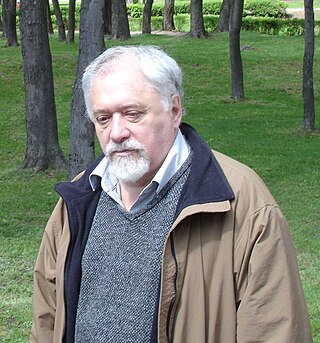
Anti-psychiatry is a movement based on the view that psychiatric treatment is often more damaging than helpful to patients, highlighting controversies about psychiatry. Objections include the reliability of psychiatric diagnosis, the questionable effectiveness and harm associated with psychiatric medications, the failure of psychiatry to demonstrate any disease treatment mechanism for psychiatric medication effects, and legal concerns about equal human rights and civil freedom being nullified by the presence of diagnosis. Historically critiques of psychiatry came to light after focus on the extreme harms associated with electroconvulsive treatment or insulin shock therapy. The term "anti-psychiatry" is in dispute and often used to dismiss all critics of psychiatry, many of who agree that a specialized role of helper for people in emotional distress may at times be appropriate, and allow for individual choice around treatment decisions.
Sluggish schizophrenia or slow progressive schizophrenia was a diagnostic category used in the Soviet Union to describe what was claimed to be a form of schizophrenia characterized by a slowly progressive course; it was diagnosed even in patients who showed no symptoms of schizophrenia or other psychotic disorders, on the assumption that these symptoms would appear later. It was developed in the 1960s by Soviet psychiatrist Andrei Snezhnevsky and his colleagues, and was used exclusively in the USSR and several Eastern Bloc countries, until the fall of Communism starting in 1989. The diagnosis has long been discredited because of its scientific inadequacy and its use as a means of confining dissenters. It has never been used or recognized outside of the Soviet Union, or by international organizations such as the World Health Organization. It is considered a prime example of the political abuse of psychiatry in the Soviet Union.

There was systematic political abuse of psychiatry in the Soviet Union, based on the interpretation of political opposition or dissent as a psychiatric problem. It was called "psychopathological mechanisms" of dissent.

The World Psychiatric Association is an international umbrella organisation of psychiatric societies.

The Serbsky State Scientific Center for Social and Forensic Psychiatry is a psychiatric hospital and Russia's main center of forensic psychiatry. In the past, the institution was called the Serbsky Institute.
Psychiatry is the medical specialty devoted to the diagnosis, prevention, and treatment of mental conditions. These include various issues related to mood, behaviour, cognition, and perceptions.
Andrei Snezhnevsky was a Soviet psychiatrist whose name was lent to the unbridled broadening of the diagnostic borders of schizophrenia in the Soviet Union, the key architect of the Soviet concept of sluggish schizophrenia, the inventor of the term "sluggish schizophrenia", an embodier of history of repressive psychiatry, and a direct participant in psychiatric repression against dissidents. He was an academician of the USSR Academy of Medical Sciences, the director of the Serbsky Institute for Forensic Psychiatry (1950–1951), the director of the Institute of Psychiatry of the USSR Academy of Medical Sciences (1962–1987), and the director of the All-Union Mental Health Research Center of the USSR Academy of Medical Sciences (1982–1987).

Anatoly Ivanovich Koryagin is a psychiatrist and Soviet dissident. He holds a Candidate of Science degree. Along with others, he exposed political abuse of psychiatry in the Soviet Union. He pointed out Russia constructed psychiatric prisons to punish dissidents.
Political abuse of psychiatry, also commonly referred to as punitive psychiatry, is the misuse of psychiatry, including diagnosis, detention, and treatment, for the purposes of obstructing the human rights of individuals and/or groups in a society. In other words, abuse of psychiatry is the deliberate action of having citizens psychiatrically diagnosed who need neither psychiatric restraint nor psychiatric treatment. Psychiatrists have been involved in human rights abuses in states across the world when the definitions of mental disease were expanded to include political disobedience. As scholars have long argued, governmental and medical institutions code menaces to authority as mental diseases during political disturbances. Nowadays, in many countries, political prisoners are sometimes confined and abused in psychiatric hospitals.

The Independent Psychiatric Association of Russia (IPA) is the sole Russian non-governmental professional organization that makes non-forensic psychiatric expert examination at the request of citizens whose rights have been violated with the use of psychiatry. The IPA is not a state institution but a public organization, and its medical reports have not a legal but an ethical significance. There is nowhere to refute one's misdiagnosis in Russia. In recent years, the IPA forces restrictions on patients’ rights and transinstitutionalization of those with mental illness.

Semen Fisheliovych Hluzman is a Ukrainian psychiatrist and human rights activist.

Political abuse of psychiatry is the purported misuse of psychiatric diagnosis, detention and treatment for the purposes of obstructing the fundamental human rights of certain groups and individuals in a society. In other words, abuse of psychiatry including one for political purposes is the deliberate action of getting citizens certified, who, because of their mental condition, need neither psychiatric restraint nor psychiatric treatment. Psychiatrists have been involved in human rights abuses in states across the world when the definitions of mental disease were expanded to include political disobedience. As scholars have long argued, governmental and medical institutions code menaces to authority as mental diseases during political disturbances. Nowadays, in many countries, political prisoners are sometimes confined and abused in mental institutions. Psychiatric confinement of sane people is uniformly considered a particularly pernicious form of repression.

Mental health in Russia is covered by a law, known under its official name—the Law of the Russian Federation "On Psychiatric Care and Guarantees of Citizens' Rights during Its Provision", which is the basic legal act that regulates psychiatric care in the Russian Federation and applies not only to persons with mental disorders but all citizens. A notable exception of this rule is those vested with parliamentary or judicial immunity. Providing psychiatric care is regulated by a special law regarding guarantees of citizens' rights.

In the Soviet Union, systematic political abuse of psychiatry took place and was based on the interpretation of political dissent as a psychiatric problem. It was called "psychopathological mechanisms" of dissent.

In the Soviet Union, a systematic political abuse of psychiatry took place and was based on the interpretation of political dissent as a psychiatric problem. It was called "psychopathological mechanisms" of dissent.
Psychiatry is, and has historically been, viewed as controversial by those under its care, as well as sociologists and psychiatrists themselves. There are a variety of reasons cited for this controversy, including the subjectivity of diagnosis, the use of diagnosis and treatment for social and political control including detaining citizens and treating them without consent, the side effects of treatments such as electroconvulsive therapy, antipsychotics and historical procedures like the lobotomy and other forms of psychosurgery or insulin shock therapy, and the history of racism within the profession in the United States.
Campaign Against Psychiatric Abuse was a group that was founded by Soviet dissident Viktor Fainberg in April 1975 and participated in the struggle against political abuse of psychiatry in the Soviet Union from 1975 to 1988.

Robert van Voren is a Dutch human rights activist, sovietologist and historian.

The Working Commission to Investigate the Use of Psychiatry for Political Purposes was an offshoot of the Moscow Helsinki Group and a key source of information on psychiatric repression in the Soviet Union.

Lawrence Hartmann is a child and adult psychiatrist, social-psychiatric activist, and former President of the American Psychiatric Association (APA). Hartmann played a central role in the APA's 1973 decision to remove homosexuality as a diagnosis of mental illness from its Diagnostic and Statistical Manual. This change decisively changed the modern era of LGBTQ rights by providing support for the overturning of laws and prejudices against homosexuals and by advancing gay civil rights, including the right to immigrate, to adopt, to buy a home, to teach, to marry, and to be left alone.











